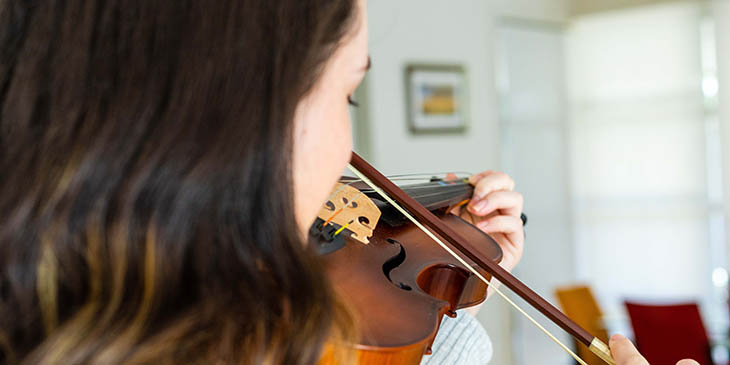14 December 2020

Taking a music qualification is linked with higher academic achievement, according to Cambridge Assessment research.
Tim Gill found that the effect of taking GCSE Music on overall attainment at KS4 (Key Stage 4; ages 14-16) is equivalent to a sixth of a GCSE grade per qualification, for students at comprehensive schools. That roughly equates to a typical student taking nine GCSEs getting one grade higher on one or two of their other GCSEs. There was also a positive association (for comprehensive school students) between taking graded music exams and KS4 attainment. For those achieving more advanced grades (4 and above) in music exams, the positive effect was estimated to be a third of a GCSE grade per qualification for girls, compared to those not taking a graded music qualification, and half a grade for boys. None of the associations described above were present for students in selective schools.
The study has an advantage over much previous research in that it uses a large dataset (478,085 students), which included a range of factors known to affect attainment, such as gender, deprivation, ethnicity, special needs and school type. The main source of the data was the National Pupil Database, which is administered by England’s Department for Education.
Tim said: “The results show that a comprehensive school student who typically takes nine GCSEs would expect to get a higher grade in one or two of their other subjects if they studied GCSE music, or a higher grade in at least 3 subjects if they achieved a graded music qualification at grade 4 or above.
“The size of the effects, whilst not large, are not trivial.”
|
Student type
|
Estimated effect from taking…
|
|
GCSE Music
|
Grade 4+ Music exam
|
|
Comprehensive school students
|
+ 1 or 2 GCSE grades
|
+ 3 GCSE grades
|
|
Selective school students
|
No significant effect
|
No significant effect
|
|
Girls
|
+ 1 or 2 GCSE grades
|
+ 3 GCSE grades
|
|
Boys
|
+ 1 or 2 GCSE grades
|
+ 5 GCSE grades
|
In his research report which is published today, The relationship between taking a formal music qualification and overall attainment at Key Stage 4, Tim says the focus on music is important because for a number of years, there have been concerns about a decline in music education in England.
Tim acknowledges limitations with the study, in particular that we need to be cautious about correlation and causation; it may be, for instance, that students who were more motivated to do well academically were also more likely to take part in extracurricular activities, such as learning a musical instrument. However, because GCSE Music is not an extracurricular activity, the positive link between taking the qualification and attainment is more robust.